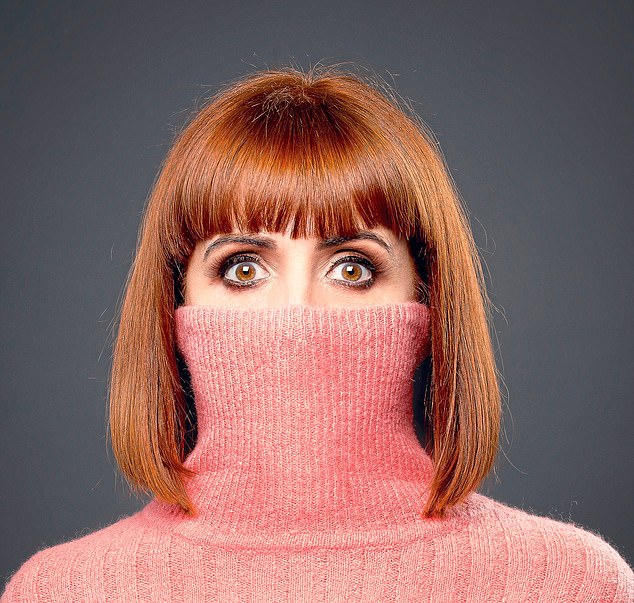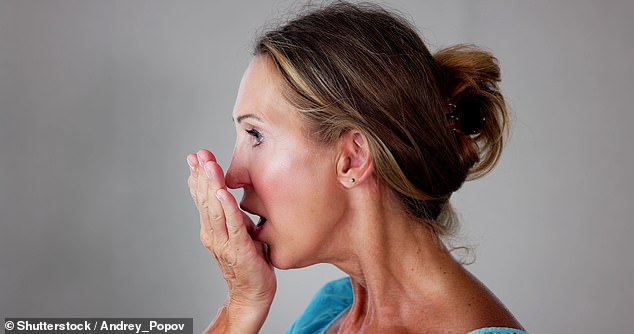When Cally Beaton was in her mid-40s, she had a consequential conversation with Joan Rivers. The Dorset-born comedian was working as an executive for MTV and Comedy Central and had come to know Rivers through her job. ‘I really liked her,’ says Beaton, sitting in her garden in London. ‘She had an entourage – mainly for her hair. Her fabulous hair! She had people who would do it in each country.’
One night the pair were having dinner when Rivers said, ‘Cally, I think you should give stand-up a go.’ It’s an encouraging suggestion from one of America’s best-known comedians, but Beaton was surprised. ‘I said, “I’m 45, I’ve got two kids, I’m a single mum and I’ve got a board-level job. It’s way too late for that.” And she just looked at me and said, “I’m 81. You’re in the thick of it. What’s stopping you?”’ Two weeks later, Rivers died unexpectedly from complications after a medical procedure. And two weeks after that, Beaton did her first open-mic gig.
Today, aged 56, Beaton has left that board-level job and become a full-time stand-up. She has performed on Live At The Apollo, played the 11,000-seat Belfast Arena, appears regularly on QI, and has 234,000 followers on Instagram. This Thursday, her first book – a self-help memoir called Namaste Motherf**kers – will be published.
If that description – of quitting your good job and quickly becoming a successful comedian – sounds gallingly easy, don’t worry: the reality was a slog. ‘No one is spat out of the womb a great stand-up.’ For two years, Beaton would work during the day, then perform at night – testing out new jokes, fielding hecklers, filming herself, watching it back, trying to improve. She was often gigging five nights a week, leaving her two teenage children at home. ‘They were delighted to have the house to themselves. Although one of them did say, at one point, “Couldn’t your midlife crisis have been, like, an affair with a tennis coach or something?”’

Concurrently, Beaton really did have a ‘good job’. She was a senior vice president at the US media conglomerate Viacom for a decade, getting paid a six-figure salary and commissioning gigantic programmes. ‘If you want someone to blame for bringing SpongeBob and South Park into the world,’ she writes in her book, ‘look no further.’
She didn’t tell her work about her stand-up – and she didn’t tell her stand-ups about her work. ‘With stand-up, your only status comes with whether you’re funny,’ she says. ‘It wasn’t going to help me with other open-mic comedians if I said, “Oh yeah, I’m actually on the board of Comedy Central.”’
But after nine months, Beaton was rumbled. She was visiting Viacom’s New York office and decided to do a competition at the Gotham Comedy Club. She made it to the final and the event was advertised – without her realising – on posters around Times Square. That lunchtime the CEO came into her office, told her he’d seen her face on the poster and asked if he could bring his family to watch Beaton perform that evening. She didn’t win the competition, ‘but the cat was truly out of the bag’.
I ask Beaton if it was at this point that she decided to pack in her TV career for full-time stand-up. She pauses. ‘I’d love it to have been a sort-of fully empowered life pivot.’ But the truth is trickier. Because, as she was working, performing, raising two children and thinking about quitting her job for stand-up, a ‘cocktail of burnout, the looming empty nest and perimenopause’ caused Beaton to have ‘a complete breakdown’ aged 47. ‘I read last week that, according to research, the unhappiest age is now 47.2. So I was on trend.’
She took a break from work and had six weeks of treatment at a psychiatric hospital as a day patient. Her children, who were doing their GCSEs and A-levels, had no idea. ‘I would leave the house like I was going to the office, go to the hospital, have intensive group therapy all day, then come home and do…’ she gestures towards her kitchen as if to suggest the act of general parenting, ‘…that.’ (In Beaton’s recent stand-up tour, there’s a moment where she tells the crowd about her breakdown and her decision to keep it hidden from her children. ‘When I say that I get loads of nods from women in the audience. So that’s either because they’ve done exactly that, or they’ve done the equivalent.’)
She was told she had bipolar disorder and put on medication, but it was a misdiagnosis. Instead, the problem was perimenopause. (Now Beaton takes only HRT.) ‘I don’t think the person [who diagnosed me] was not a good psychiatrist. I just think he got it wrong.’
Not long after her breakdown, Beaton went on holiday to Iceland and was in an almost-fatal car accident. ‘And at that point I was, like, something has to change.’ She quit TV and committed to comedy. ‘So it was midlife collapse, near death and my general hot mess of an existence that drove me into this radical reinvention,’ she says cheerily.
Beaton has a joke about swapping a corporate life of days spent in ‘brightly lit rooms, full of entitled white men talking over me’ to comedy nights in ‘dimly lit rooms, full of entitled white men talking over me’. It sounds about right. She recalls a heckler at a show who, before she had opened her mouth, shouted, ‘Women aren’t funny.’ She asked why and he said, ‘They only make jokes about periods’. Beaton replied, ‘I cannot believe you think I am young enough to have periods.’
‘To be fair, he came to the stage door afterwards to say that he was out of line and he wished he hadn’t said it. And I said, “Well, that’s nice of you, but I imagine I’m not the first woman you’ve seen on a comedy bill. And if I am, let me tell you: I’m not a one-off.”’ (Other hecklers are more inventive. At an early show, two teenagers threw a paper aeroplane with a note written on it at Beaton. It said ‘don’t give up’, which she thought was sweet until a second note followed with the addendum: ‘your day job’.)
There’s also an assumption that – as a woman in her 50s – she couldn’t be a starting-out comic. In 2023, Beaton supported Micky Flanagan at a London show and security wouldn’t let her through the stage door. They thought she was a fan, trying to blag entry.
In general, she says, male comedians aren’t the problem. It’s the culture and people around them. Beaton has experienced ‘lecherous and inappropriate stuff’ from comedy club promoters, and says, as a woman, ‘it’s probably worse the younger you are; I hear horrible stories from my younger colleagues’. I ask if there’s something about the industry – how it often revolves around late nights and drinking – that encourages a boys’ club and Beaton is unsure. ‘There are some wrong-uns in the comedy industry, but possibly no more than everywhere else.’
Still, she is absolutely not complaining. In 2023, Beaton played the Hammersmith Apollo for the first time. It was the venue she had always wanted to play and her father and son came to watch. ‘I remember feeling, I have reinvented myself. And as I was about to walk out – through that famous Apollo dry ice, onto the stage, in my 50s – everything in the universe felt right. I thought, there’s nowhere I’d sooner be. Whatever happens, I’m really proud of this.’
Namaste Motherf**kers by Cally Beaton is published on Thursday by Headline, £22. To pre-order a copy for £18.70 until 10 August, go to mailshop.co.uk/books or call 020 3176 2937. Free UK delivery on orders over £25











